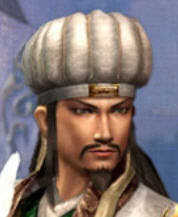Philosophical Musings - Part XI
The Roots of Wisdom
A clear and uncluttered mind is one the greatest treasures that one can possess. For with clarity of mind, one can perceive reality and not be deceived by falsehoods and delusions. Both the mundane and divine can be grasped without difficulty. How then can one achieve clarity of mind? The Roots of Wisdom may yet point the way:
Clarity of Mind

Of those who make their meals
From simple herbs and vegetables
Many are as pure as ice
As stainless as gems

Of those who dress in fancy clothes
And feast sumptuously
Lower themselves to acting
Like servants and slaves

Ultimately, the Mind is made clear
By Simplicity
And Integrity lost
By Opulence







8 comments:
Hmm.. good one. Did u make the poem by yourself?
Actually its not just the world that measures us by our material possessions. Many spiritual practitioners are also trapped in spiritual materialism. I've met ppl who say uttering Namo Amitofo 1000 times a day is better than uttering it 100 times a day. I know people get into a habit of diligently counting these things and pretty soon, they start arguing over which verse gets bigger "merit points" and veer further away from the intent of the practice. The mental process soon mimics that of accumulating physical wealth.
Spiritual materialism (and its accompanying opulence) is very common and it has ravaged otherwise good systems.
Dear Damien,
Glad that you liked the poem. It's not by me, though. This series of poems is from the book 'Roots of Wisdom' by Hong Yingming written during the end of the Ming Dynasty.
As to spiritual materialism, I guess you are right. It's easy to become too attached to something you feel is valuable, even spirituality. IMHO, an absence of humility is usually a sign that something is wrong with the practitioner.
Rgds
I thought you acquire "merit pts." by doin' good deeds. Not by merely chantin' the titles of various sutras?
What's wrong with this world?
Great, chantin' now seems akin to gettin' frequent flyer miles.
Hope I'm not blasphemin'.
From my understanding, chanting is mostly used by the Mahayanists. The technique uses sound to focus the mind and bring it to a meditative state. Sound is a legit sense door and it works fine if done properly. Problem is over time, people get attached to form and forget the intent. They start wearing prayer beads as a fashion accessory - to send a message of holiness I reckon.
I may be blaspeming too but to me, the only reason to use prayer beads is as an abacus - to calculate the precise number of chants. Thing is, can anyone really know for sure how many chants you need to reach a meditative state. If you need 100 on a good day and 341 on a bad day, why even have prayer beads?
Interestingly, prayer beads and rosaries were first used by Judeo-Christian religions. I've no idea how it ended up in Buddhism.
Dear Yours Truly,
There's no harm in asking questions that you don't understand. Feel free to do so, anytime.
As a lay Buddhist, my opinion is the same as yours. Chanting is practiced so as to allow one to attain concentration and focus. What is more important is to perform good deeds.
Unfortunately, it's easy to lose sight of this and view chanting as some sort of a competition, hence the term 'Spiritual Materialism' as introduced by Damien.
Rgds
damien : the world was globalized even before the 19th & 20th centuries with the age of industrialization. My guess is that with the size & influence of Tang China, Western forms of influence merged with Eastern religion.
The Tang Chinese were very much receptive to things of foreign nature, Persian dress, Zoroastrian thought, even Christianity & Islam (& many fools thought THEY were the first Christians or Muslims!).
'Twas a great age of openmindedness & cordial relations with neighborin' powers, till the unhappy internal problems startin' with An Lu Shan...
Very similar to the present US of A, except without the "hammer of military might" constantly on the minds of its rulers.
gee, where am i? got history book to lend?
Dear Ah Keong,
Try Wikipedia :)
Rgds
Post a Comment